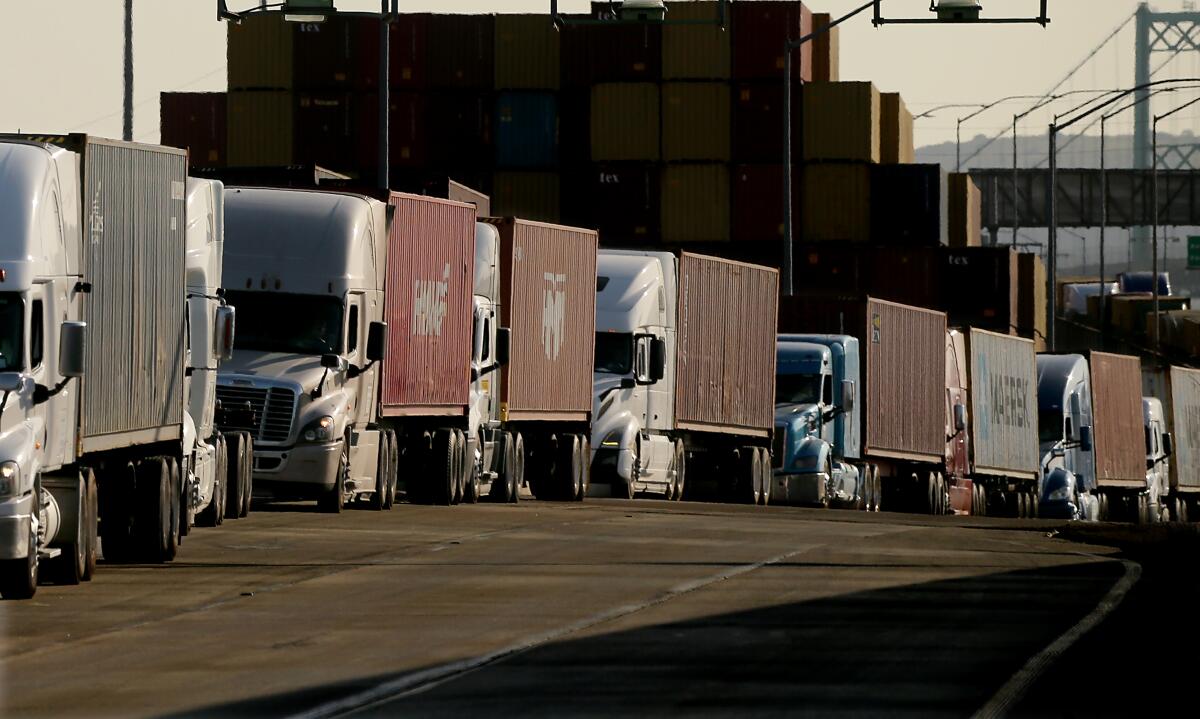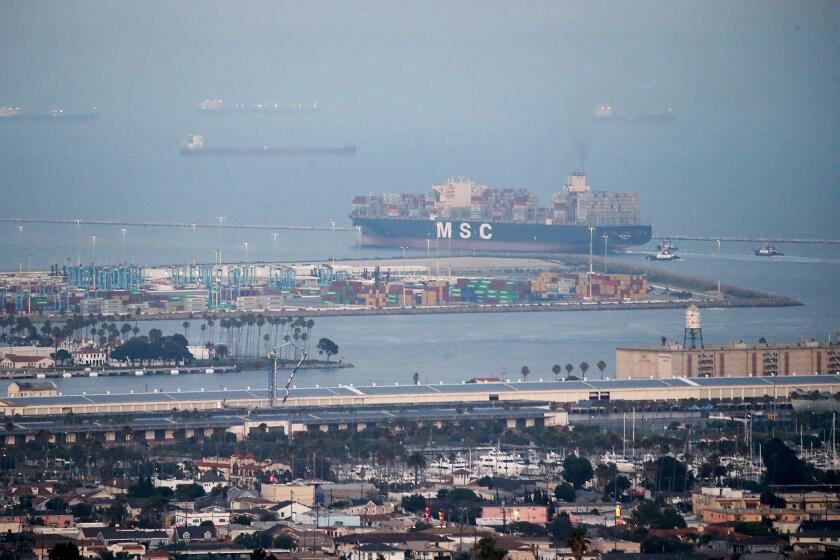West Coast dockworkers ratify a new six-year contract

Dockworkers at Los Angeles, Long Beach and 27 other West Coast ports have ratified a new six-year contract, bringing labor peace that experts said should help attract more business and jobs.
The new contract, tentatively agreed to in June after intervention from acting Labor Secretary Julie Su, came after nearly a year of contentious negotiations between the International Longshore and Warehouse Union and the Pacific Maritime Assn., which represents the shipping lines and terminal operators that employ the dockworkers.
Recurring wildcat labor actions by union members snarled freight traffic at the ports of Los Angeles and Long Beach, which handle nearly 40% of the U.S. imports from Asia and together make up the nationâs largest cargo container complex.
Worried shippers shifted considerable business to competing ports on the U.S. East and Gulf coasts. With a ratified contract, those shipments could return to the West Coast, but it was unclear how long that might take.
âThere is every likelihood that some of that business will returnâ to Western U.S. ports, said international trade economist Jock OâConnell of Beacon Economics. âThe big question is how much. We will have to wait a while to see.â
Beginning last year, rival ports on the East and Gulf coasts made great strides in attracting more cargo, jobs and revenue, thanks in part to major infrastructure projects and worries over delays from potential work stoppages at West Coast ports. Los Angeles port Executive Director Gene Seroka recently estimated that his port had lost about 15% of its cargo to other harbors because of the labor unrest since August 2022.
OâConnell said that the labor agreement ratification, which covers 29 West Coast ports, âought to guarantee six years of harmony on the docks. It removes a significant irritant in the operation of U.S. West Coast ports and makes them more acceptable to shippers eager to move their cargo expeditiously.â
The East Coastâs busiest port complex has periodically proclaimed itself the nationâs largest for container cargo. The myth could cost California foreign trade jobs.
Union members had been working without a contract since early July 2022. As the high-stakes negotiations dragged on for months, agreements were reached over benefits and the thorny issue of automation, but the union and employers remained far apart on wages.
The new contract, retroactive to July 1, 2022, gives union members a 32% pay increase over the six-year life of the contract plus a $70-million bonus for continuing to work in the early months of the COVID pandemic, according to a person familiar with the negotiations who wasnât authorized to speak publicly. The proposed pay increase consists of a $4.62 hourly raise the first year of the contract followed by $2 hourly raises each subsequent year.
Under the expired contract, union members earned an average of nearly $195,000 a year, not including overtime and bonuses, plus benefits worth an average of $102,000 per year, including healthcare that is fully paid for by employers, according to the Pacific Maritime Assn.
The ILWU said in a statement that 75% of its 22,000 members voted in favor of the contract, adding that it âprotects good paying jobsâ and âmaintains health benefits, and improves wages, pensions and safety protections.â
Los Angeles Mayor Karen Bass was one of many local officials who heaped praise on the agreement, saying: âThe positive impacts of the approved contract will be felt across the region, the West Coast and our nation.â
When the tentative contract agreement was reached, Bass said that the Los Angeles port generates economic activity that supports 1 in 15 jobs in L.A.
More to Read
Inside the business of entertainment
The Wide Shot brings you news, analysis and insights on everything from streaming wars to production â and what it all means for the future.
You may occasionally receive promotional content from the Los Angeles Times.












